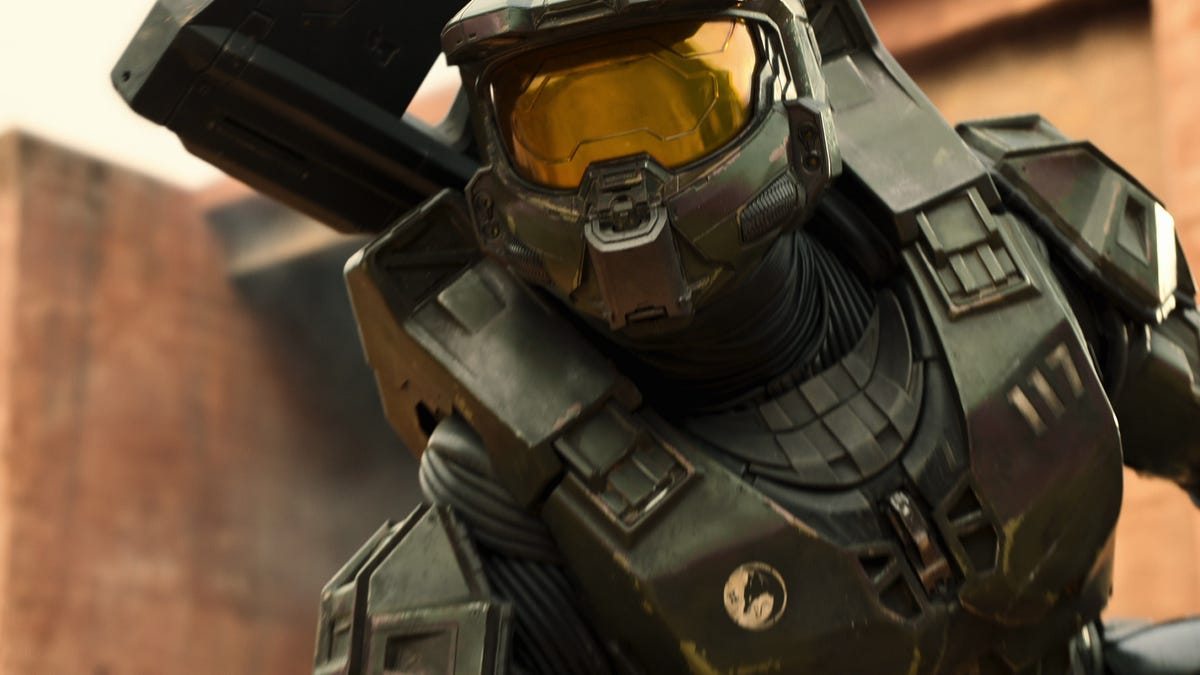'Halo' TV Show on Paramount Plus an Ultra-Violent Assault on the Senses
Review: Master Chief goes mask off in a surprisingly compelling sci-fi adaptation of the long-running Xbox games.

The Halo TV show is way better than you might expect.
You could argue that Halo, the new Paramount Plus TV show based on the popular video game, is arriving 15 years too late.
Despite coming in the wake of Halo Infinite, arguably the best Halo video game in well over a decade, the cultural cachet of the franchise has been dipping since 2007, when Halo 3 was released and a generation of gamers sat transfixed in front of their consoles to "Finish The Fight."
Since then, we've finished that fight. We've finished a few more fights in the years following. In fact most of us, even the most diehard fans of the Halo series, are a little over finishing fights.
Kwan Ha, played by Yerin Ha.
The original Halo game, released in 2001, was a vaguely jingoistic, post-9/11 tale of heroic UNSC soldiers battling against a hyperreligious (read: Muslim) alien race known as the Covenant. A race hellbent on activating a universe-destroying ring world -- aka the titular Halo.
Even nongamers will recognize the "Halo," an enormous, ancient weapon designed to make all sentient beings extinct. The game was a pretty straightforward, well-executed "good versus evil" story designed to efficiently get players to the good part: lobbing grenades and firing guns at an endless onslaught of aliens intent on murdering you and the entire human race.
But in 2022, in the wake of prestige TV, a pandemic and a society far less trusting of authority, that story doesn't exactly pass the vibe check. Particularly the jingoism and the mild space racism. It's for this reason that the Halo TV show, starring Pablo Schreiber as the protagonist Master Chief, with Natascha McElhone as his creator Dr. Catherine Elizabeth Halsey, wisely deviates from the video games in a number of smart ways.
In the TV show, Halo's soldiers are far from the good guys. Instead they're part of a fascist army hellbent on suppressing human colonies off-world. The Master Chief is their wrecking ball: an overwhelming one-man army capable of killing aliens and his fellow humans without mercy at the behest of his superiors.
But after touching an alien artifact that unlocks long suppressed memories, the Master Chief begins to slowly discover his humanity -- pitting him against not just the Covenant aliens, but the army that helped create him.
Despite tropes and some clunky expository dialogue, Halo is perfectly serviceable science fiction that borrows liberally from other influential shows. Its off-world rebel groups resemble the "Belters" from The Expanse, while its central emotional core, the burgeoning relationship between the Master Chief and Kwan Ha -- the sole human survivor from the show's opening battle -- borrows beats from The Mandalorian.
Master Chief and his fellow Spartans are humanity's only effective weapons against the Covenant.
This isn't necessarily a bad thing. Halo is compelling and barrels along at a friendly pace, clearly wrestling with its source material in fundamental ways, trying to make video game elements work in a new format. Not everyone will enjoy the choices made. After the release of the show's last trailer, fans went ballistic upon discovering that Cortana -- an AI character from the video games -- wasn't blue and transparent like she is in the original.
If that upsets you, then brace yourself. Wait till Master Chief removes his helmet -- probably the best example of the show literally and figuratively breaking free from the shackles of the video game.
But the show is faithful where it makes sense. Its action sequences are kinetic and incredibly visceral -- ultra violent even. Legs are blown off, bodies are ripped in half. Early in the first episode an alien mercilessly murders a group of small children cowering in a hidden bunker. Fans of the game may remember that Neil Blomkamp was slated to direct a Halo movie back in the mid-2000s. District 9 was born of the bones of that failed project and, ironically, the Halo TV show feels very influenced by Blomkamp and his work.
In the show, Covenant forces are utterly terrifying and completely indestructible until the Master Chief and his band of Spartans arrive. These encounters do a tremendous job of communicating what makes the game special. Fans complaining that Cortana is the wrong color will forgive it all when they see Master Chief hiding behind cover waiting for his shields to recharge.
But ultimately, whether fans like it or not, Halo is at its best when it pushes back. Dedicated fans may resent some of its braver choices, but it's undoubtedly for the best. Dialogue clunkers aside, Halo is a well-produced TV show with solid performances and brilliantly executed set pieces. Given the history of video game adaptations, I'm taking that as a win.
Halo might be 15 years too late, but better late than never.

